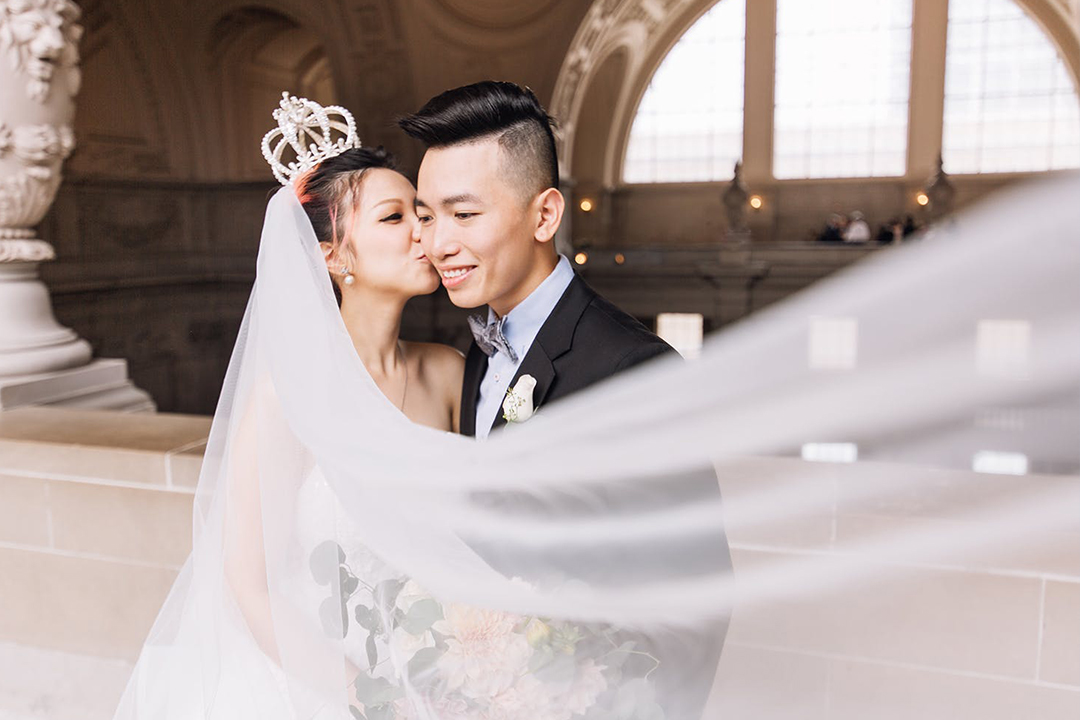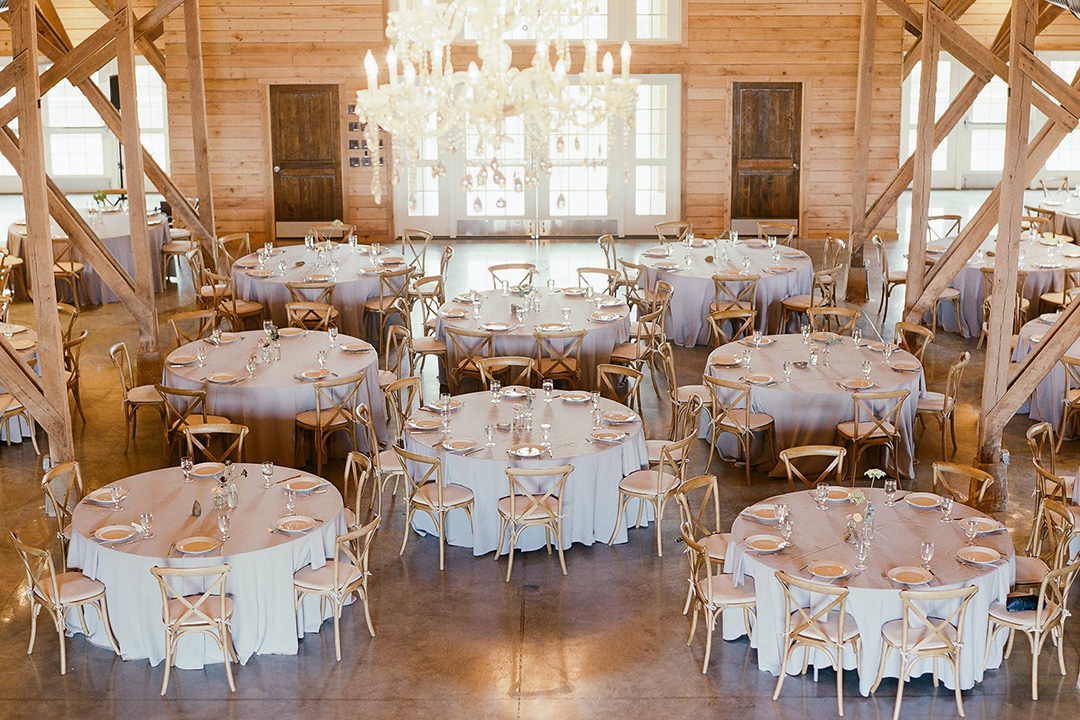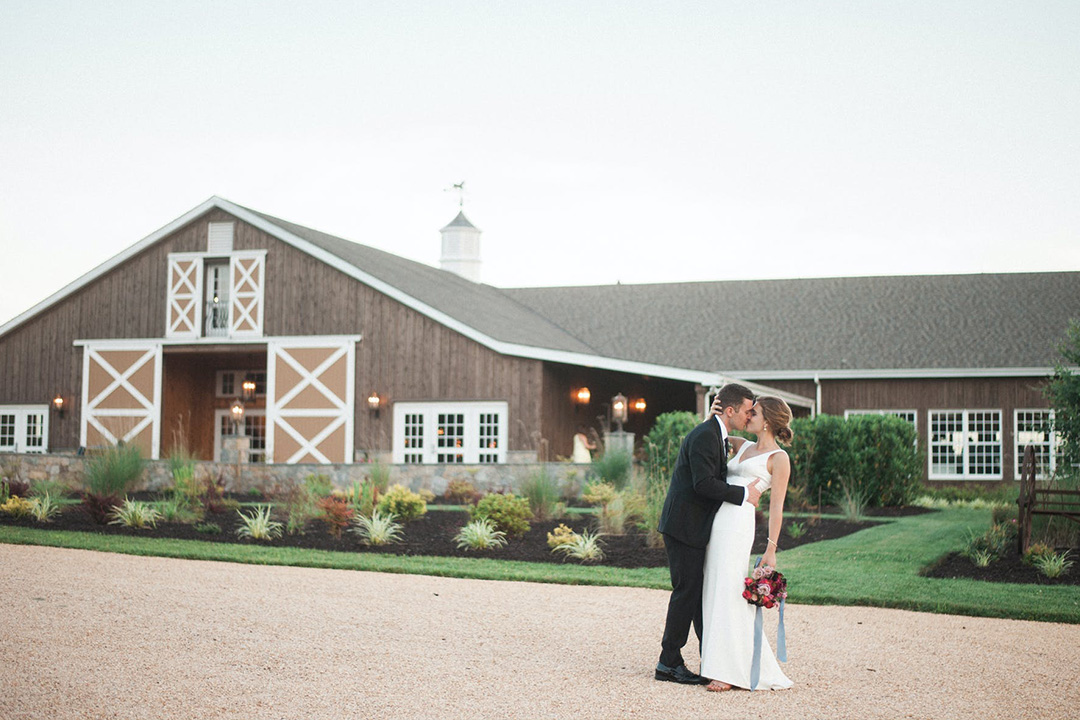Wedding Insurance Resources for the Happy Couple
Learn how wedding insurance can protect you from unforeseeable mishaps or accidents. Read about different policies and decide what’s right for your wedding.

The First Look ✨
- Weddings can get postponed or cancelled for any reason. Before gathering wedding insurance policy quotes, calculate what you stand to lose in deposits to discover if it’s worth the investment.
- Before you buy an insurance policy, talk with your venue about the type of wedding insurance coverage they have.
- Cancellation, deposit, and liability coverage are just some of the protections wedding insurance can offer.
As much as you hate to imagine it, there are many reasons why you may have to cancel or postpone your wedding. Extreme weather events, such as hurricanes or tornadoes, or any weather severe enough to prevent people from traveling, can shut down your plans in an instant.
If either of you is sick or injured, you'll need to postpone. While the risk of that may seem low, it is still possible. If you factor in the possibility that essential members of the wedding party or a family member may fall ill or get hurt, the possibility of needing to postpone your wedding ceremony starts to seem more probable.
Special event and wedding vendor insurance policies exist to protect your pocketbook from the expenses involved with rescheduling the big day. But, they can also cover you from unforeseeable catastrophes that occur when the wedding does proceed as scheduled. The bigger your wedding budget, the more risk you have of losing out.
Not everyone will need wedding insurance, either because they already have coverage in their situation or because the cost won't be worth the benefit. Before you start collecting quotes, take a few minutes to calculate how much you stand to lose in deposits if you need to cancel. Keep that number in the back of your head when you're getting prices from insurance companies. Also, take some time to find out where you may already be covered.
What to Find Out Before You Buy an Insurance Policy
If you're renting out a wedding venue, you should talk to them about what kind of wedding insurance coverage they have. They may already have policies in place to handle liability for any guests that are injured. Ask for copies of the venue's event insurance policies to find out all the areas where you are covered. In some instances, a wedding venue will require you to purchase liability coverage to host your event. And, be sure to ask them: “What does wedding insurance cover?” You want to make sure that you know exactly what is covered in the event that something happens.
Unfortunately, rainy weather isn't considered a reason to cancel or postpone your wedding in the eyes of most insurance companies. If you're planning an outdoor wedding during the rainy season, try booking a place that offers an indoor alternative. As you approach the day of your wedding, you can keep an eye on the forecast and ready your expectations for a change of plans.
If you have your heart set on an outdoor wedding, consider using your own backyard, or asking a friend or family member if you can use their place. That way, you will have more flexibility if there's rain in the forecast. If you’re having a wedding at a private home, you may already have the coverage you need. Read on to learn more about how different policies will protect your finances.
Policies That May Cover Your Wedding Day
There is no one-size-fits-all solution to cover your wedding. You'll need to peruse these options and find the policy that makes the most sense for your situation, and don't hesitate to ask an insurance agent for some clarity.
Homeowner's Insurance
If you're having a backyard wedding, a homeowner's policy will likely cover any property damage that happens, or any bodily injury that a guest sustains. It may also cover stolen gifts and property damage. The same thing applies to renter's insurance, if you don't own your home.
If the event is being held at a friend or family member's house, talk to them early on in the wedding planning process about what their homeowner's insurance will cover. If you’re paying money to rent their space, an insurance company might view it as a business operation and decline to cover any damages.
The only way to know for sure what is covered and what won't be covered is to talk to an insurance agent before the event so that you understand everything the insurance policy will cover. Find out the maximum limits on the policy for bodily injury or property damage.
If there are any gaps, you can make an informed decision before getting additional coverage for the event. If you're throwing a big wedding celebration, you may consider raising your limits or purchasing extra wedding insurance coverage for the event.

Cancellation and Postponement Coverage
Cancellation coverage can either reimburse you for the money you lose, if you have to cancel the wedding, or pay the costs, for rescheduling the event. This can be because of extreme weather, injury, or sickness in the wedding party for either of your immediate families. Any reason beyond human control, as long as it isn't a named exclusion, should be covered.
Common exclusions added to these policies may include a change of heart exclusion. So, if one of you has cold feet, you won't be covered. It also won't cover illness related to pre-existing conditions.
In addition to costs associated with canceling or postponing, your wedding insurance can also help out with things that went wrong with your ceremony. For example, if your photographer or videographer had technical issues, wedding insurance can go towards retaking pictures or creating montages if they don't show up on the big day.
Deposit Coverage
In some cases, you may need to purchase additional deposit coverage. Some cancellation coverage may cover one of your deposits, but this coverage will extend to any other expenditures you had to pay for upfront that may fall through. This can even be for reasons beyond cancelation or postponement. For example, if a food caterer ghosts you, or if a service you hired suddenly goes out of business, you can still get your money back
Liability Coverage
Liability coverage will help pay medical expenses for any injuries you are liable for, as well as cover third party property damage claims. Accidents happen, and sometimes even your closest friends can turn to litigation if they have suffered irreparable harm. Liability insurance protects your assets and can save you from a mountain of debt if the worst-case scenario were to happen.
If you already have an umbrella policy through your insurance company, it may cover property damage and bodily injury claims for special events. Find out whether or not your policy contains an exclusion that applies to your wedding. If it’s covered, you don't have to worry about purchasing additional liability coverage for your special day.
Liquor Liability Insurance
Guests love an open bar at a wedding reception. Unfortunately though, you may be held liable for any damages from alcohol-related accidents that your guests cause after they leave the wedding. Car accidents and emergency room visits can easily cost thousands of dollars. While some wedding liability insurance may come with it, others will sell it separately. In some instances, the venue serving the liquor will be responsible for maintaining this coverage.
Common Optional Riders
If there is a chance that either of you may be deployed suddenly, a military rider will cover you. Some policies allow you to protect your gifts, if they are stolen or damaged within a specific time frame of the wedding ceremony. There is also a rider that covers damages to your wedding attire. You may also consider adding honeymoon insurance to recoup your costs, if you are unable to travel.
Shopping for Wedding Insurance
As soon as you start putting down deposits and booking venues, you should start shopping for wedding cancellation insurance. Bear in mind, though, that a lot of companies will place limits on how far in advance you can purchase a wedding insurance policy. Some states require that you buy a wedding or special event insurance at least two weeks in advance for it to cover extreme weather cancelations.
If you've already put down any non-refundable deposits towards your wedding, ask the insurance agent if you can add it to the coverage. Many policies will honor things you've paid for ahead of time, as long as you have documentation to back it up.
Liability insurance doesn't need to be purchased ahead of time. In fact, it might be a good idea to find out how many people RSVP to your wedding before you decide on how much liability insurance to buy.
No matter what kind of insurance you are buying, the only way to know if you've gotten the best value for your money is to shop around. When comparing quotes from one company to another, it's a little more complicated than finding the price tag that feels right to you. You need to make sure that you take into account details like the cost of the deductibles and any named exclusions. If you can't afford a deductible, or you're missing vital coverage, it's not worth your money.
The Bottom Line
Event insurance may seem like one more expense to add to the list when you’re planning your wedding. It’s true that not everyone will need it, but it’s one of those things that is better to have and not need. The more time and money you have invested in your special day, the more stressful it will be if something goes wrong.
Investing in wedding insurance can give you some peace of mind, so you don't need to stress as much at the prospect of something going wrong. Once you’re able to put the worst-case scenarios to rest, you’ll be able to focus and better enjoy the days before your ceremony.

